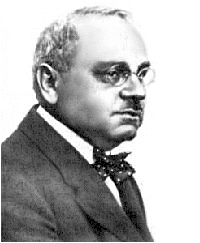Alfred Adler Facts For Kids
Alfred Adler was an Austrian psychiatrist and psychotherapist, best known for founding individual psychology and introducing concepts such as the inferiority complex and social interest.


Set reading age
View for Kids
Easy to read and understand
View for Students
Clear, detailed explanations
View for Scholars
Deep dives and big ideas
Introduction
Alfred Adler was a very clever psychologist from Austria! 🇦🇹 He was born on February 7, 1870, in a city called Vienna. Adler is famous for creating a type of psychology called "Individual Psychology." This means he focused on understanding people as unique individuals with their own feelings and thoughts. He believed everyone has a special purpose in life and that we can learn about ourselves by looking at our feelings for others. Adler helped us understand how our past experiences shape who we are today! 😊
Gallery of Alfred Adler Facts For Kids
Biography
Alfred Adler was the second of seven children in his family. 👶He loved learning and studied hard in school. Adler became a doctor and began his career as an eye specialist. However, he soon found a passion for psychology! In 1902, he joined Sigmund Freud's group but had different ideas, leading him to start his own theories. In 1911, he founded the Society for Individual Psychology. He moved to the United States in 1935, where he continued to teach and write until his death in 1937. His work continues to inspire people around the world! 🌍
Key Theories
Adler had several important ideas about how people think and feel. One key theory is that we all want to belong and feel important in our communities. He believed that feelings of inferiority can be strong, but we can overcome them by working on our skills 🎓. He also thought that our childhood experiences shape our beliefs about ourselves and others, impacting how we act as adults. Adler emphasized kindness, cooperation, and the importance of social connections, showing that our relationships with others make us healthier and happier! 🤗
Birth Order Theory
Adler also talked about how being the first, middle, or youngest child in a family can affect your personality! 📦He believed that your place in the family can shape how you see the world. For example, first-born children might be responsible and strong leaders, while middle children could be good at negotiating and sharing. Youngest siblings might be fun-loving and seek attention. 🥳Each role comes with its own advantages and challenges, helping us understand our feelings, goals, and relationships with family and friends even better!
Individual Psychology
Individual Psychology is the name of Adler's special approach to understanding people. He believed each person has a unique life story and experiences that shape who they are. One important part of this theory is the "holistic" view, which means we can't just look at one part of a person's life; we must consider everything together! 🌈Adler encouraged people to recognize their strengths and explore their feelings about others in their lives. This approach helps us understand ourselves better and lead healthier, more fulfilling lives. Learning about ourselves is essential! 🥳
Influence On Psychology
Alfred Adler's ideas have greatly influenced modern psychology! 🧠His theories helped shape how experts understand people and their emotions. Many psychologists today use Adler's concepts of social interest and encouragement in therapy. His work inspired future psychologists, including Carl Rogers and Abraham Maslow, to focus on personal growth and human connection. Adler's emphasis on understanding individuals rather than just their problems has changed how we see mental health and well-being, making his contributions to psychology timeless and essential! 🌟
Adlerian Therapy Techniques
Adler developed several helpful techniques to support therapy and personal growth. One technique he loved was called "encouragement." 🌟 Instead of criticizing, he believed in lifting people up, focusing on their strengths. He also encouraged people to explore their feelings and dreams through art and storytelling, allowing them to express themselves creatively! 🎨Role-playing is another fun way he taught people to understand others better. He believed that these techniques help build confidence, create better relationships, and lead to happier lives. Sharing our thoughts and feelings can be so powerful!
Criticisms And Controversies
While many people admire Adler's work, some critics have raised concerns. 🔍One criticism is that his theories sometimes lack scientific proof. Some psychologists feel that aspects of Adlerian therapy are too simplistic and may not apply to everyone. Additionally, some argue that the focus on birth order might be overstated. Yet, despite these debates, Adler's ideas remain popular and relevant as they continue to motivate other scholars to explore and adapt his theories. Understanding different perspectives helps us grow as learners! 🌱
Neuroticism And Social Interest
Neuroticism is a word Adler used to describe when someone feels anxious or worried. 😰He believed that everyone has these feelings sometimes, but we can learn to manage them! Adler also talked about "social interest," which is the desire to help and connect with others. He thought that when people feel good about themselves and their ability to care for others, they are healthier and happier. By focusing on building positive relationships, we can overcome feelings of anxiety and help each other thrive in our communities! 👫❤️
Alfred Adler Facts For Kids Quiz


Make things. Learn new skills. Share safely.
DIY is a creative community where kids draw, build, explore ideas, and share.
No credit card required